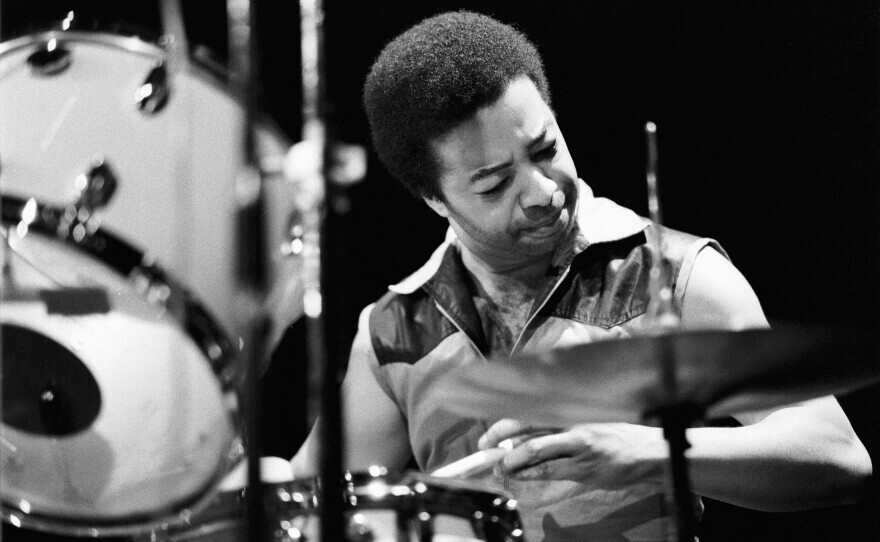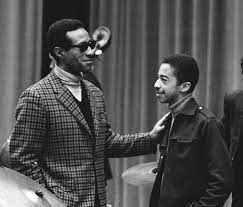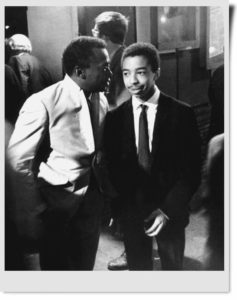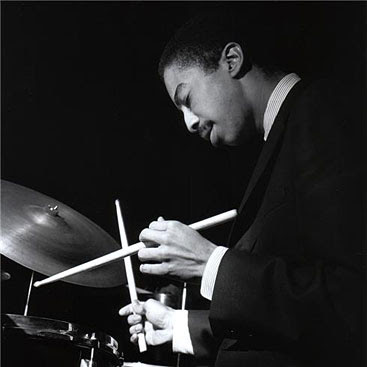News
Tony Williams: A Drumming Prodigy

Tony Williams, born Anthony Tillmon Williams on December 12, 1945, in Chicago, Illinois, was a trailblazing American drummer and musician whose remarkable talent, innovative style, and pioneering spirit left an indelible mark on the world of jazz and beyond. In his tragically short life, Williams accomplished what many musicians only dreamt of, revolutionizing the art of drumming and shaping the course of modern jazz.
Childhood and Early Life

Williams was born into a musical family, his father, Tillman Williams, was an amateur saxophonist who played in jazz clubs, and to a singer mother. Growing up in Boston, Massachusetts, his father introduced him to music. He was exposed to jazz from a very young age, immersing himself in the rich musical heritage of the city. Williams showed an extraordinary aptitude for music early on, demonstrating exceptional rhythm and coordination even as a child. His talent was evident to all who heard him play. Encouraged by his father, young Tony began playing drums at the age of eight. By the age of 11, he studied formally with Alan Dawson, a Music professor from Berklee College. When he was 12, he was sitting in with Art Blakey, and with Max Roach when he was 13. By the age of 15, he already earned a reputation as one of the finest drummers in the city. By then, he was already playing gigs with Jackie McLean, Gil Evans, Eric Dolphy, Cecil Taylor, and Sam Rivers. And when he was 16, saxophonist McLean brought him to New York.
Career Beginnings and Bands

At the tender age of 17, Williams caught the attention of trumpeter Miles Davis, who was immediately struck by the young drummer’s precocious skill and fiery energy. Davis invited Williams to join his groundbreaking quintet, which included such luminaries as Wayne Shorter, Herbie Hancock, and Ron Carter. This marked the beginning of a fruitful collaboration that would revolutionize the landscape of jazz.
As a member of Miles Davis’s quintet, Williams played a pivotal role in shaping the direction of the group, pushing the boundaries of conventional jazz and ushering in the era of modal and avant-garde jazz. His innovative approach to rhythm and his fearless experimentation with tempo and dynamics set him apart as one of the most daring and influential drummers of his generation.
Influences and Drumming Style
Williams drew inspiration from a wide range of musical influences, including jazz icons like Max Roach, Elvin Jones, and Art Blakey, as well as rock and funk musicians such as Jimi Hendrix and James Brown. He synthesized these diverse influences into a uniquely personal style characterized by his blistering speed, razor-sharp precision, and unparalleled creativity.
One of Williams’s most distinctive contributions to the world of drumming was his use of polyrhythms and metric modulation, techniques that allowed him to create complex, shifting rhythmic patterns that defied conventional categorization. His ability to seamlessly transition between different time signatures and meters earned him a reputation as a master of rhythmic innovation, and his virtuosic solos became the stuff of legend.
Legacy
Tony Williams’s influence extended far beyond the realm of jazz, permeating virtually every genre of contemporary music. His groundbreaking work with Miles Davis helped to lay the foundation for the fusion movement of the 1970s, inspiring a new generation of musicians to explore the possibilities of combining jazz with elements of rock, funk, and electronic music.
Williams’s influence can be heard in the playing of countless drummers across a wide range of genres, from jazz and fusion to rock, hip-hop, and beyond. His legacy lives on not only in the recordings he left behind but also in the countless musicians he inspired to push the boundaries of their art and strive for new levels of creativity and expression.
Tragically, Tony Williams’s life was cut short when he passed away on February 23, 1997, at the age of 51 due to a heart attack while recuperating from a gall bladder surgery. However, his impact on the world of music continues to resonate to this day, and his contributions to the art of drumming remain as relevant and influential as ever.
Here are a few videos of the Drumming Prodigy, and the First “Fusion” Drummer
Footprints, with Miles Davis Quintet, 1967
The Tony Williams Lifetime, A Famous Blues 1970
Drum Solo 1972
Tony Williams was not just a drummer, he was a visionary artist whose fearless creativity and uncompromising dedication to his craft changed the course of music history. His legacy serves as a testament to the power of innovation and imagination, inspiring generations of musicians to push the boundaries of what is possible and explore the endless potential of human expression through music.


